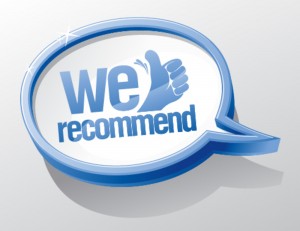Observations across Transpartisan Organizations from David Nevins
CivilPolitics’ mission is to educate the public on evidence-based methods for improving inter-group dialogue, with evidence defined broadly to include academic studies, empirical studies of community interventions, and also the practical wisdom learned by organizations that are bringing people together in the community. As part of this last area of evidence, we are asking our partners in the community to answer a set of semi-standardized questions designed to help us learn the common themes that run through successful community work. If you would like to have your organizations’ work profiled, please do contact us and/or fill out this form. This is the fourth post in the series detailing the experiences of David Nevins, who has been involved with numerous organizations active in the work of bringing people together across political divides, and who also has founded the Nevins Democracy Leaders program at Penn State University, which provides an education in transpartisanship leadership for promising students.
What specific programs do you work with? Briefly describe how you got to where you are.
As a businessman from Pennsylvania for almost 40 years, who never was involved in politics until 4years ago, I’ve become frustrated with the unbridled lack of civility, crippling partisanship and dysfunctional gridlock that is preventing our country from solving the serious problems we face on a daily basis.
For this reason about four years ago, I became involved with an organization called No Labels. No Labels is a bipartisan movement of 600,000 Democrats, Republicans and independents dedicated to the simple proposition that common sense solutions to our national challenges exist, and our government should be able to address and resolve those challenges successfully. I served on the Executive Board of No Labels for two years.
About two years ago, as a Society of Fellow at the Aspen Institute, I focused my efforts on supporting the Aspen Rodel Fellowship in Public Leadership, a program designed to support political leaders committed to sustaining the vision of a political system based on thoughtful and civil bipartisan dialogue.
More recently, I became involved and support Next Generation, a program of the National Institute of Civil Discourse that works with state legislators to cultivate a culture where discourse and collaboration typify public policy development.
I am now leading an effort as a co-founder and Executive Team member of The Bridge Alliance to build a shared identity, raise visibility, strengthen and expand the numbers of organizations and individuals dedicated to collaborative civic problem solving and collaborative policy innovation in the United States.
Currently I also am the co-creator and benefactor of the Nevins Democracy Leaders program, a program within The McCourtney Institute for Democracy, based in the College of the Liberal Arts at Penn State University The Nevins Democracy Leadership program that I am the benefactor of and have helped to design and create will institute the following programs with the inception of the program in the fall of 2015:
a) For one or two semesters, the Penn State students selected for the program will participate in collaborative dialogues amongst themselves (and with guest lecturers) to learn the skills of civil political discourse and critical thinking necessary for a problem solving approach to governance.
b) Every Leader will gain practical experience (for a summer, semester, or full year) working as an intern with an organization committed to improving American politics.
c) Each year, Leaders who have returned from their internships will share their experiences with the new cohort of students joining the program.
d) In the coursework and various events leading up to their internship, Nevins Leaders will analyze and discuss historical texts and contemporary commentaries on topics such as democracy and leadership. We will identify a small core of courses beyond Rhetoric and Civic Life that can help prepare Leaders for their internships, though Leaders will not be obliged to take those additional courses.
e) Prospective and future Leaders will also have the opportunity to hear from past years’ Leaders, who will give presentations and participate in discussions on their experience. An effort will also be made to bring in inspiring speakers, perhaps as part of the McCourtney Institute for Democracy’s ongoing speaker series, who can bring to students their practical experiences in community building, politics, and democracy.
What has worked well in the programs/events that you have been involved with? From your experience, what advice would you give others?
As to specific advise as far as things to do to replicate the successes of the programs I have been involved with, I would suggest a high level of collaboration with the stakeholders you are working with. I believe that enhancing communications, knowledge sharing, and general collaborative techniques helps the leaders of the programs I am involved with refine and improve the programs they are leading.
Among the ideas listed on CivilPolitics’ website, based on psychological research, that have been suggested as ways to reduce intergroup divisions. Which of these ideas are reflected in the work you do? What might you add to these ideas?
Providing Information on Common Goals/Threats, reducing the perception of “Zero-Sum” competition, (any win for one side = a loss for the other side), showing examples of positive relationships , showing examples of cross-group unexpected agreement or disagreement , reducing certainty of individual beliefs
Additionally, the importance of understanding the mission one has established is the key to success of any program. It is easy to get distracted by the chaos and uncertainty involved with a new project or movement, and thus the importance of defining and staying focused on one’s mission cannot be overstated as one of the most important factors for the achievement of success.
Where can others learn more about what you do?

